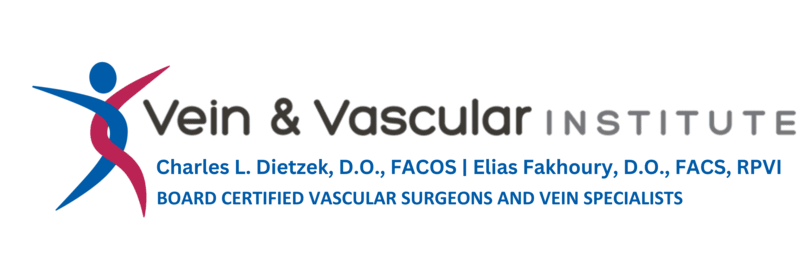Having deep vein thrombosis, or DVT, means you have blood clots in the deeper veins in your legs. While this condition doesn’t always result in noticeable symptoms, you might experience swelling and other symptoms. Vein doctors might recommend wearing compression stockings in order to relieve your symptoms and prevent DVT from becoming worse. Compression stockings can be an effective way to manage DVT, so it’s important to learn more about them, including how they work.
How Do Compression Stockings Work?
Compression stockings are a type of leg covering made from elastic fabric. This fabric fits tightly around your upper legs, lower legs and ankles. These stockings are designed to be tightest around your ankles and slightly looser around your upper and lower legs. Compression stockings produce pressure that helps promote healthy blood flow on a continuous basis. This helps ensure that your blood is able to flow from your legs to your heart without any difficulty. Wearing these medical grade stockings can help stop blood from pooling inside your leg veins.
How to Use Compression Stockings
Vein doctors might recommend compression stockings for treating DVT swelling and other symptoms or to prevent DVT from occurring in the first place. The compression level of these stockings can help ease the effects of DVT and ensure proper blood flow. You should wear compression stockings from the time you wake up to the time you go to bed. Ideally, you should put these stockings on before getting out of bed before your legs have a chance to swell. You can use lotion beforehand to help get them on more smoothly. You should roll the top of the stocking down all the way, place your foot in, and gently pull the stocking up. You should replace compression stockings every four months or so and wash them each time you use them.
Choosing Your Compression Stockings
To make sure you get the right stockings, you should measure your legs. Your doctor can recommend thigh high, knee high or full-length compression stockings as needed. You’ll also need to make sure you get the right compression level or tightness, which depends on your condition.
Treatments for Deep Vein Thrombosis
Since DVT can put you at risk of pulmonary embolism, which can be deadly, it’s important to explore treatment options.
Anticoagulants (Blood Thinners)
Anticoagulants or blood thinners help stop existing blood clots from growing larger. This type of medication can also help prevent other blood clots from developing. Your vein doctor can recommend the right kind of blood thinner for effective DVT treatment.
Compression Stockings and Leg Elevation
Wearing compression stockings can ease swelling and prevent DVT from occurring. Elevating your legs at or above heart level can also relieve swelling and other DVT symptoms.
Vein Surgery Treatments
Vein surgery treatments, such as thrombectomy, might be recommended if you have large blood clots or if you can’t use blood thinning medications.
Contact Us at Vein and Vascular
If you need treatment for DVT or other vein problems, please contact Vein and Vascular Institute to schedule a consult. During your visit, you can meet our vein physicians in Vineland, Voorhees, Sewell and Lumberton, New Jersey to go over vein treatment options.
